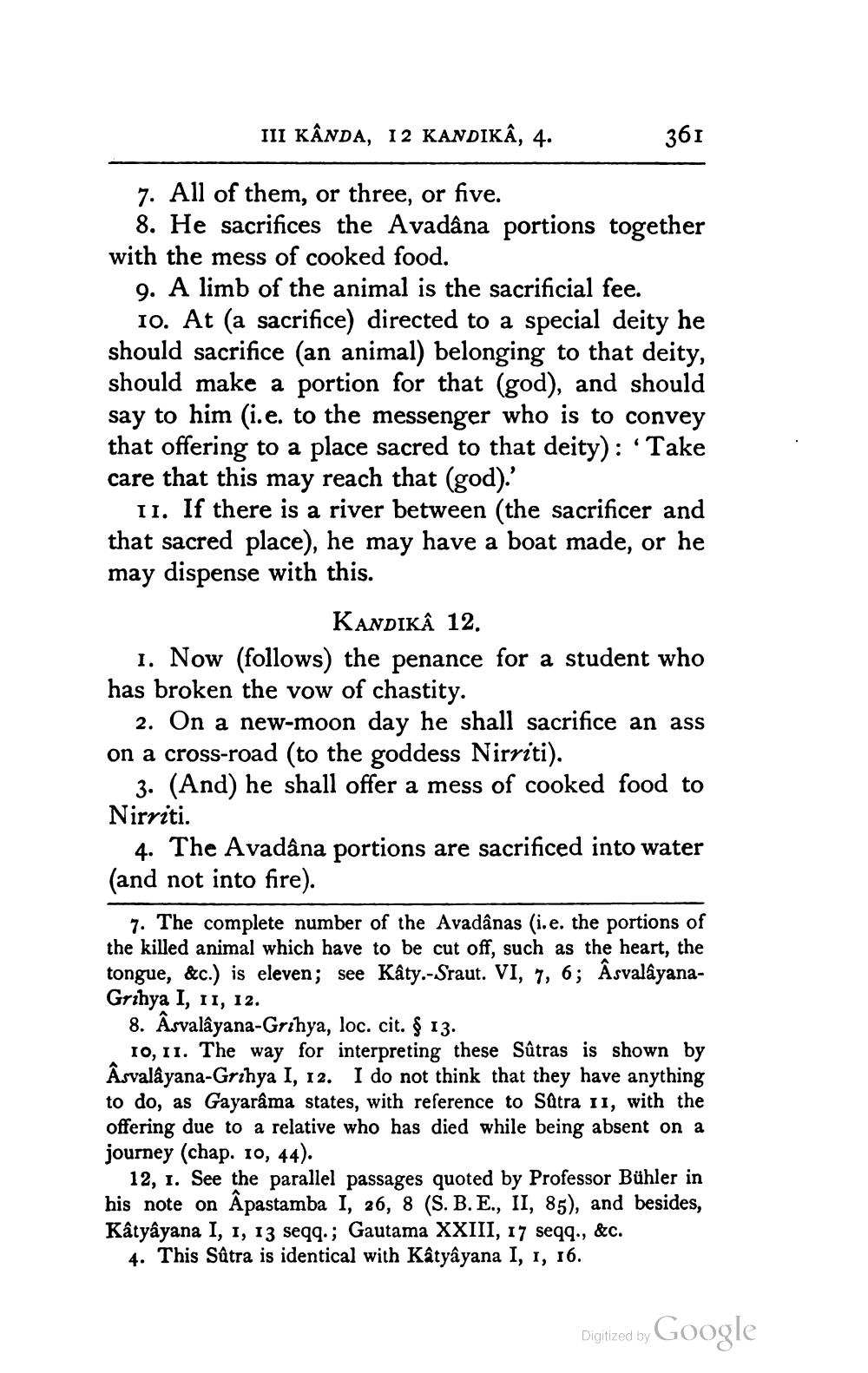________________
III KANDA, 12 KANDIKA, 4.
361
7. All of them, or three, or five.
8. He sacrifices the Avadâna portions together with the mess of cooked food.
9. A limb of the animal is the sacrificial fee.
10. At (a sacrifice) directed to a special deity he should sacrifice (an animal) belonging to that deity, should make a portion for that (god), and should say to him (i.e. to the messenger who is to convey that offering to a place sacred to that deity): 'Take care that this may reach that (god).'
II. If there is a river between (the sacrificer and that sacred place), he may have a boat made, or he may dispense with this.
KANDIKA 12.
1. Now (follows) the penance for a student who has broken the vow of chastity.
2. On a new-moon day he shall sacrifice an ass on a cross-road (to the goddess Nirviti).
3. (And) he shall offer a mess of cooked food to Nirriti.
4. The Avadâna portions are sacrificed into water (and not into fire).
7. The complete number of the Avadânas (i.e. the portions of the killed animal which have to be cut off, such as the heart, the tongue, &c.) is eleven; see Kâty.-Sraut. VI, 7, 6; AsvalâyanaGrihya I, 11, 12.
8. Asvalâyana-Grihya, loc. cit. § 13.
10, 11. The way for interpreting these Sûtras is shown by Asvalâyana-Grihya I, 12. I do not think that they have anything to do, as Gayarâma states, with reference to Sutra 11, with the offering due to a relative who has died while being absent on a journey (chap. 10, 44).
12, 1. See the parallel passages quoted by Professor Bühler in his note on Âpastamba I, 26, 8 (S. B. E., II, 85), and besides, Kâtyâyana I, 1, 13 seqq.; Gautama XXIII, 17 seqq., &c.
4. This Sûtra is identical with Kâtyâyana I, 1, 16.
Digitized by Google




